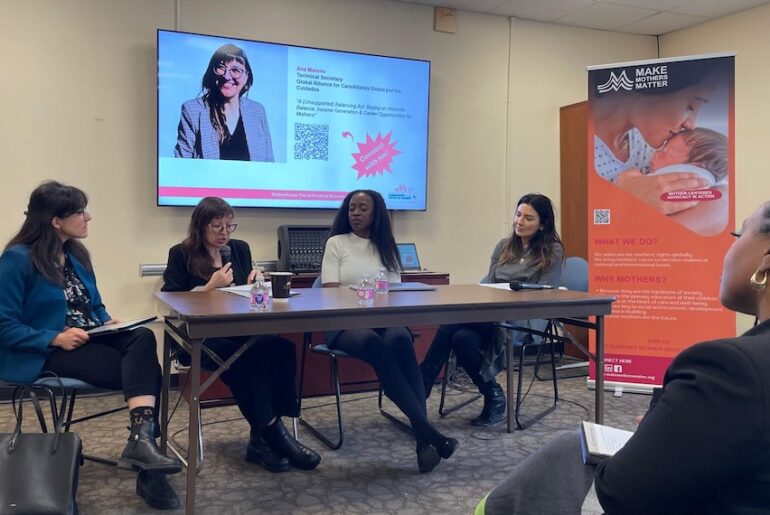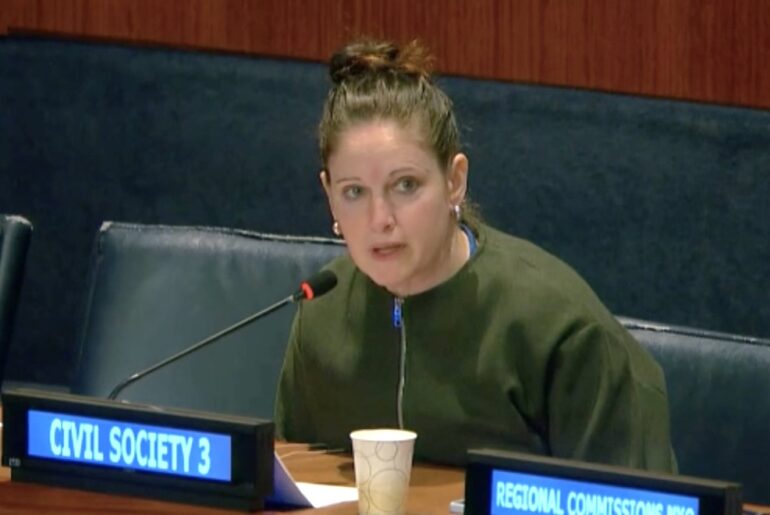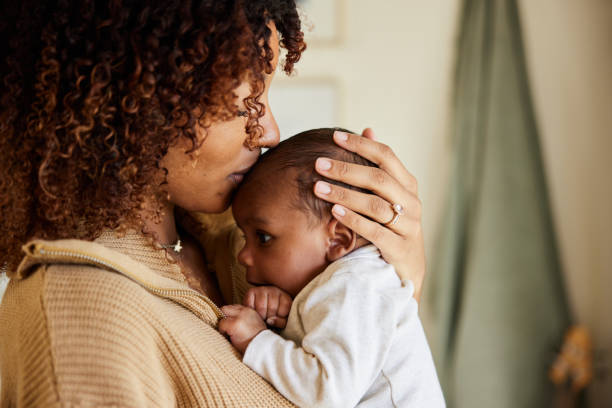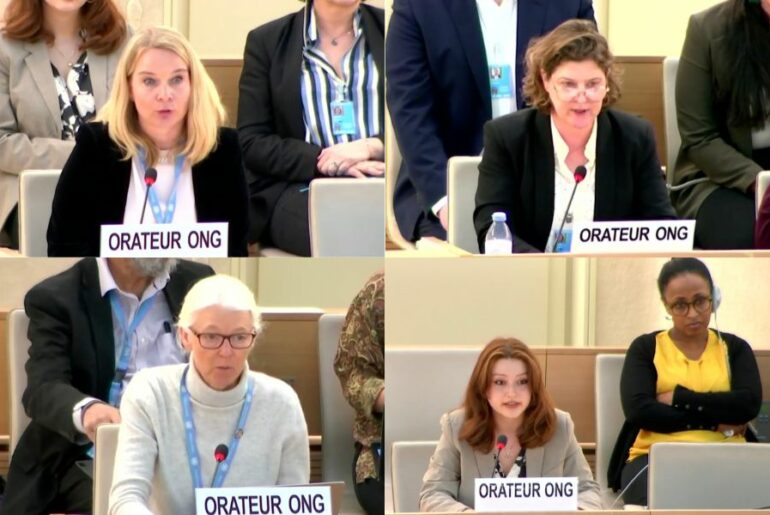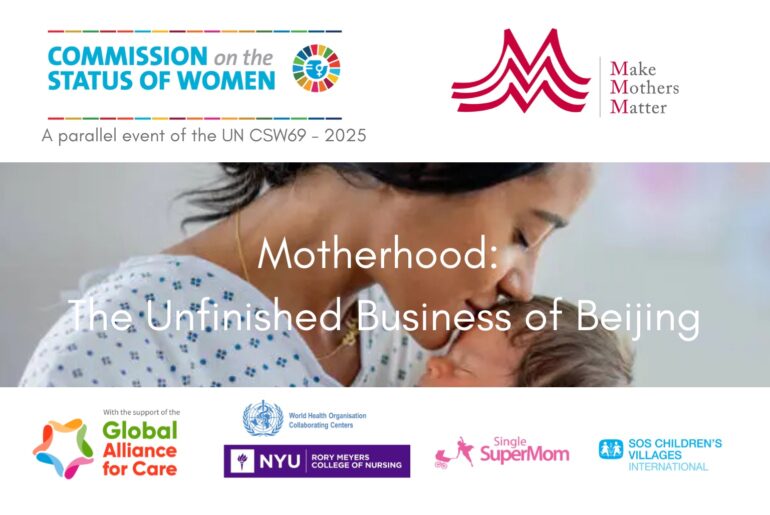General consultative status at the UN : which means for MMM advocacy work?
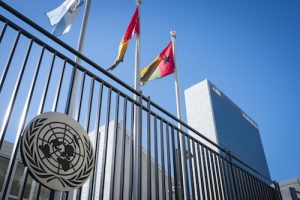
UN headquarters in New York – UN Photo / Manuel Elias 2016
The founding charter of the United Nations gives civil society the right to participate in and contribute to debates which it holds. MMM was one of the first non-governmental organisations (NGOs) to be accredited to the UN in 1949.
General consultative status is the highest level of accreditation to the UN and is granted to the most important international NGOs whose spheres of interest cover most of the remit of the Economic and Social Council of the United Nations (ECOSOC).
As mothers are involved in all areas covered by ECOSOC, MMM was granted general consultative status in 2004. MMM is one of the 133 NGOs to benefit from this status among the nearly 4,900 NGOs currently accredited.
Ways for MMM to advocate?
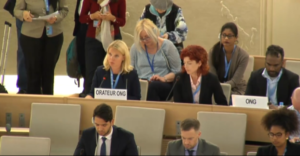
MMM Representative delivering an oral statement at the UN Human Rights Council
In this context, MMM has several options :
- Written statements to the Commissions or the Council for Human Rights
- Oral statements during debates, especially at the Human Rights Council
- Interventions during informal consultations or parallel events during UN conferences
- Replies during consultations with states and other involved parties
- Presentations during parallel events or other fora organised by NGOs or States
- Organisation of parallel events to UN conferences
- Direct contacts with States delegations…
MMM collaborates with other NGO
All of the above actions can be conducted together with other NGOs, which gives them more scope and visibility, thus more impact.
For this reason, MMM is an active member of various NGO committees and networks – see the Network and Partner page.

